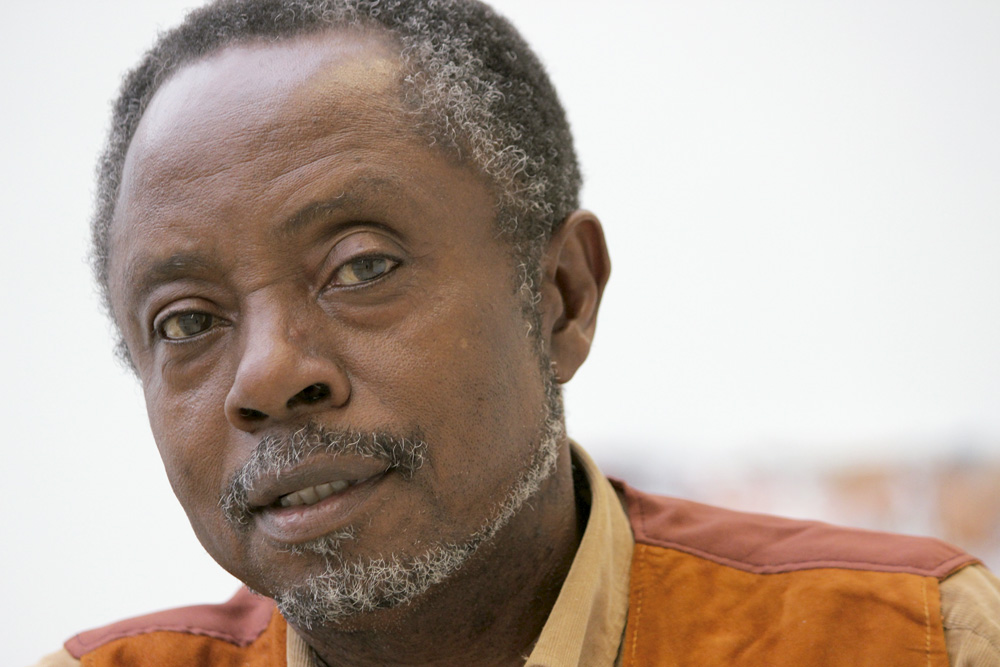"In Equatorial Guinea there is no native language with official status"
- Last March, Professor Justo Bolekia Boleká (Santiago Baney, Isla de Bioko, 1954) spoke at the Faculty of Letters of the UPV/EHU on the situation of languages in Equatorial Guinea at an event organized by the Unesco Chair and the African Association Manuel Iradier. He is a PhD in Bolekia at the Complutense Universities of Madrid and Salamanca and a Professor of French Philology at the Universities of Salamanca. This is a speaker of his native town who has participated in initiatives in favor of him, according to the website elpueblobubi.com.

Your name has history, not just Just, at the conference you said you're Busupé.
You don't have any name. I have the name of my great-great-grandfather, my great-grandfather, my father, my father… When I was little, my father’s friends also called Busupé. However, my compatriots did not have that license, they did not have my permission. This is the way it is in our culture. I would be offended if someone of my age called me Busupé without my consent and would face him. The older ones I could call me Busupé.
He came to Madrid in 1977, and soon came to university. The first day of class has history.
The teacher came in and I got up, as usual in our country. And the rest of the students, and the professor, looked at me. I stood up, and I stood up more perceptibly, on my black skin. I finally sat down, but instantly the professor said: “You!” I said: "It's not about me! I just arrived!” I went to the next student. “He’s doing you.” “No, no, it’s doing you!” he said. I got up and the professor asked me: “What do you call yourself?” “It is just my grace.” “Right? You black and righteous? And being I white, what is my name?” I told him he was calling me Busupé. Of course, he was not able to say the phrase either.
What brought that anecdote?
Awareness, identity search, outrage for not having grown up in my culture, anger, frustration… Lots of things. In our case, the name implies a certain identity, just as the language implies a certain identity, since the language is the basis of the identity. The anecdote of the University of Madrid helped me to recover the essence of my culture. Many do not love the word, the “essence”, because essentiality means singular, and singularity collides with the common thing. “I am Bubi… I am Basque… I am Catalan…”. This, of course, runs counter to those who claim homogeneity, to the politically correct and to conventionalism.
“If we lost the Bubi language, we would disappear as a people”
There was a motto that had been the motto of an anti-racism campaign: “We are equal, we are different.”
In all cultures, there is a desire to educate people before developing brain hemispheres. When people are educated in strict homogeneity, it is useless to try to get out of it. It is difficult to try to get that person to adulthood and get out of that homogeneity, because they will be in the attitude of rebelling against the uniqueness and essentiality of no one. It is not worth fighting their misery.
What is the language map of Equatorial Guinea?
In our country, 75% speak English language fan, 15% speak Bubi and the rest speak English pidgin and other languages. However, the official languages are Spanish, French and Portuguese. The Bubi language, for example, has no official status, no status, no legal system, no fundamental law, no constitution. In our country there is no native language with official status.
How do indigenous unofficial languages survive in Equatorial Guinea?
Language. The fan language, for example, is spoken not only in Equatorial Guinea, but also in Christmas Eve, Congo and others, it has more than a large number of speakers. As for the Bubi, it is maintained thanks to the strong will of the Buddhists to maintain their language. What is more, now that generations of young people are becoming aware that language is the basis of their identity and culture. The young musicians sing in Bubi, the actors sing in Bubi, those who are recovering old customs and rituals also speak Bubies… This movement helps the language to survive.
Non-officialdom also has a place.
We do not have education in public schools, except in cultural centres. And at best, in which the government is “threatened”, it resorts to the austerity of the house of culture, as happened last year.
What is familial transmission in the case of bubi?
Since Spanish and French have become languages of socio-economic empowerment, many fathers and mothers prefer their sons and daughters to speak Spanish, French or English, because they think that knowing these languages will make it easier for them to surround the work. When family transmission fails, we would like the school to teach the language. The child sees that the language parents speak at home is not what he learns at school. On this occasion, if the teacher instructs his or her parents to ask him or her how things are said in his or her language, curiosity would awaken in the child, he or she would set on the path of learning.
“Use is a matter of political will, it must be encouraged”
Would teaching automatically lead to its use?
No, many languages are taught in school, but they are not used. This is the case for foreign languages, for example. They're taught, they're learned, but they're not used. Firstly, because there is no need to use it. Here, for example, the interlocutors speak Spanish and everyone knows Spanish. Those who do not know it do not have to make the least effort to learn or speak in Basque. Use is not limited to language teaching and learning. Use is independent of political will, it must be encouraged, invented incentives, rewarded by the people who use it, acknowledged merit. In this way, it will encourage people to use whatever language they are. No reward, hardly.
What if the Bubi language was lost?
That we would disappear as a people. As for culture, we would disappear, although as people we lived. There is a heritage that we want to convey to future generations and we cannot convey it by translating it into Spanish. It doesn't make sense.
In many European countries it is a problem to have more than one language. Bilingualism has great sorrows and fatigue. How do you manage a lot of languages from African countries?
The low intellectual level of African politicians prevents the management of linguistic policies and multilingualism in many States on the continent. It would not be difficult, since each language is located in a particular space, and each language can be sufficiently protected by law in each of those spaces. It should be taught to read and write in the local language in elementary schools, as the child will learn the official foreign language before the street. On the contrary, the learning of the native language that is its own will have no other path than that of school.











